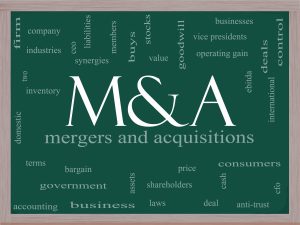 Our Mergers & Acquisitions division provide advisory as well as business- broking services for companies. Acquisitions are an important element of the growth cycle of any business – we at DTC endeavour to understand the values and aspirations of our client. Our advisory services range from mergers to corporate finance, divestiture strategies and fund-raising. Whether you are looking to acquire, divest or raise capital to grow a business, DTC can provide knowledge and experience unparalleled in the industry, executing deals from beginning to end.
Our Mergers & Acquisitions division provide advisory as well as business- broking services for companies. Acquisitions are an important element of the growth cycle of any business – we at DTC endeavour to understand the values and aspirations of our client. Our advisory services range from mergers to corporate finance, divestiture strategies and fund-raising. Whether you are looking to acquire, divest or raise capital to grow a business, DTC can provide knowledge and experience unparalleled in the industry, executing deals from beginning to end.
Click here to get in touch with us to assist further…
What’s the Difference Between a Merger and an Acquisition?
Although they are often uttered in the same breath and used as though they were synonymous, the terms merger and acquisition mean slightly different things.
A merger occurs when two separate entities (usually of comparable size) combine forces to create a new, joint organization in which – theoretically – both are equal partners. For example, both Daimler-Benz and Chrysler ceased to exist when the two firms merged, and a new company, Daimler Chrysler, was created.
An acquisition refers to the purchase of one entity by another (usually, a smaller firm by a larger one). A new company does not emerge from an acquisition; rather, the acquired company, or target firm, is often consumed and ceases to exist, and its assets become part of the acquiring company. Acquisitions – sometimes called takeovers– generally carry a more negative connotation than mergers, especially if the target firm shows resistance to being bought. For this reason, many acquiring companies refer to an acquisition as a merger even when technically it is not.
Varieties of Mergers
From the perspective of business structures, there is a whole host of different mergers. Here are a few types, distinguished by the relationship between the two companies that are merging:
- Horizontal mergers- Two companies that are in direct competition and share the same product lines and markets.
- Vertical mergers- A customer and company or a supplier and company. Think of a cone supplier merging with an ice cream maker.
- Congeneric mergers- Two businesses that serve the same consumer base in different ways, such as a TV manufacturer and a cable company.
- Market-extension merger – Two companies that sell the same products in different markets.
- Product-extension merger – Two companies selling different but related products in the same market.


